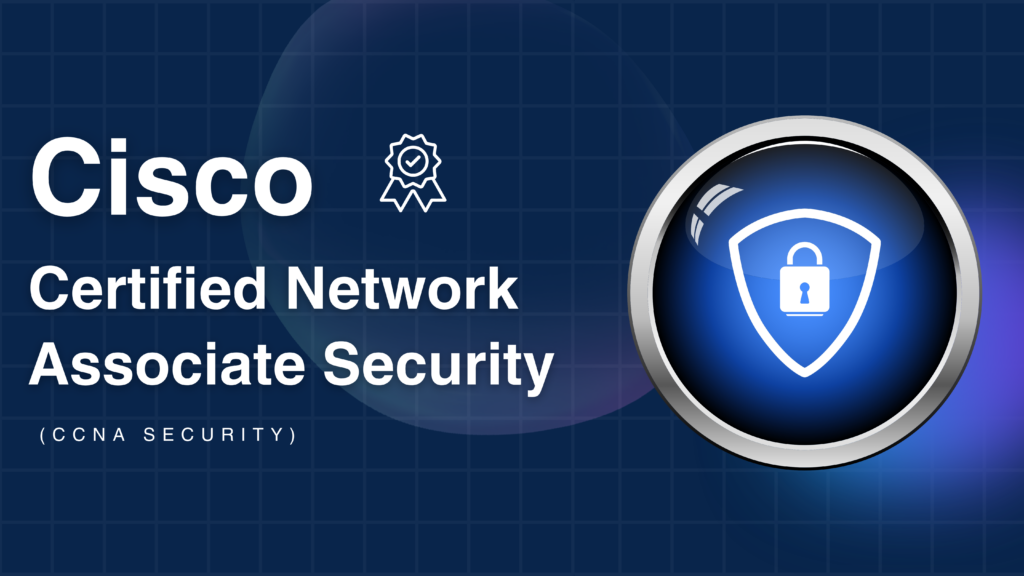Cisco Certified Network Associate Security - CCNA Security

The Cisco Certified Network Associate Security – CCNA Security certification equips IT professionals with the skills required to develop a security infrastructure, recognize network vulnerabilities, and mitigate security threats. Ideal for network administrators and security professionals, this certification validates your ability to secure Cisco networks, implement firewalls, VPNs, and intrusion prevention systems. Recognized globally, the CCNA Security credential enhances your credibility, increases your earning potential, and opens doors to roles like Security Administrator, Network Security Engineer, and IT Security Specialist.
At Certify360.ai, we make your certification journey seamless and smart. Our AI-powered learning platform offers a personalized study plan tailored to your strengths and knowledge gaps. With access to updated Cisco Certified Network Associate Security – CCNA Security practice exam sets, hands-on labs, flashcards, and real-time performance tracking, you’re always exam-ready. Plus, our expert-led support ensures your doubts are resolved promptly. Whether you’re just starting or reviewing before your test day, Certify360.ai helps you build confidence and pass the CCNA Security exam on your first attempt.
Exam Overview
- Number of Questions: 70 questions (multiple choice or multiple response)
- Exam Duration: 90 minutes
- Exam Fee: 300 USD (may vary slightly based on region and currency exchange rates)
- Delivery Options: Online proctored exam, In-person at a Pearson VUE testing center
Why Choose US?
Certification study guides for Cisco Certified Network Associate Security – CCNA Security
- Securing Network Infrastructure: Learn to implement robust security on routers, switches, and network devices using features like ACLs, port security, and Layer 2/3 security protocols to defend against common threats.
- Firewall and VPN Technologies: Understand the configuration and deployment of Cisco ASA and zone-based firewalls, and build secure remote access and site-to-site VPNs to protect data in transit.
- Cisco Security Architecture: Explore the core components of Cisco’s security solutions—including AAA (Authentication, Authorization, Accounting), TrustSec, and Identity Services Engine (ISE)—to enforce policy-based access controls.
- Threat Defense and Mitigation: Get hands-on with techniques for detecting, preventing, and responding to threats using Cisco tools like IPS (Intrusion Prevention System), Security Intelligence, and advanced malware protection.
- Implementing Secure Routing and Switching: Master best practices for securing routing protocols (OSPF, EIGRP) and switch-level configurations, including VLAN security, DHCP snooping, and dynamic ARP inspection.
- Monitoring and Troubleshooting: Learn how to monitor network activity and security logs using Cisco tools like syslog, SNMP, and NetFlow, and troubleshoot security incidents effectively using diagnostic commands and packet capture tools.
Best resources for Cisco Certified Network Associate Security – CCNA Security
- Review the official CCNA Security Study Guide and take online practice exams.
- Set up a free-tier CCNA Security account to practice, explore hands-on labs, and join CCNA communities to stay updated on best practices.
- Here are some curated resources to support your study journey: CCNA Security
How to pass Cisco Certified Network Associate Security – CCNA Security Exam
- Understand the Exam Blueprint
Review the official CCNA Security exam guide to understand the domains, weightage, and types of questions.
- Hands-On Practice
Use the CCNA Security Free Tier to get real-world experience with services like EC2, S3, IAM, VPC, and RDS.
- Take Practice Exams
Regularly test yourself with mock exams to identify weak areas and get comfortable with the exam format.
- Review Whitepapers & FAQs
Focus on CCNA Security whitepapers like the well-architected framework, and read FAQs for core services.
Tips to pass Cisco Certified Network Associate Security – CCNA Security
a. Understand the Exam Blueprint
Focus on the five domains:
- Design Resilient Architectures
- Design High-Performing Architectures
- Design Secure Applications and Architectures
- Design Cost-Optimized Architectures
- Define Operationally Excellent Architectures
b. Use Official CCNA Security Resources
- CCNA Security Exam Guide
- CCNA Security whitepapers (especially the Well-Architected Framework)
c. Practice with Hands-On Labs
Use CCNA Security Free Tier or platforms like A Cloud Guru or Qwiklabs to get real-world experience.
d. Take Mock Tests on Certify360
Certify360 offers realistic mock exams that simulate the actual test environment, helping you assess your readiness and identify weak areas.
Why you should get the CCNA Security certification ?
How Learners Benefited from Certify360 in Achieving Certification ?



If you know someone studying for this cert, share this with them
